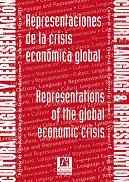In Vino Veritas: Old Wine Markets in New Global Economic Battles
Main Article Content
Abstract
Wine markets have supported regional cultures and international alliances for centuries. Renaissance diplomatic and dramatic language refers to French markets, not economies, extending globally from Bordeaux to the Far East. Yet Shakespeare invents our representation of the global economy’s illgotten gains and predatory speculation in wine (and other) markets. Prince Hal leverages the very wine market that he derides obsessively into a narrative of sin
and redemption. Hal consummates his narrative by rejecting Falstaff, whom he identifies as an earthly Bacchus. But Burgundy’s pragmatic representation of the excellence of viniculture in Henry V fits the paradigm of sustainable marketplaces in part because the symbolism of fine wine is universally esteemed. Today’s economic crisis proves that the quasi-Hegelian idea of an ethical economy cannot
be attained through financial interdependence alone. Moreover, it validates the Renaissance narrative that responsible wine markets improve with age.
Downloads
Article Details
An open-access CREATIVE COMMONS copyright license is used. Those authors whose works are published by this journal, accept the following terms:
- Authors will retain their copyright and guarantee the Journal the right to first publish their work, which will simultaneously be subject to the Creative Commons Recognition License CC BY SA that allows third parties to share the work, provided that its author and first publication is indicated.
- Authors may adopt other non-exclusive license agreements for the distribution of the published version of the work (e.g., deposit it in an institutional telematics file or publish it in a monographic volume) provided that the initial publication in this journal is indicated.
- Authors are allowed and recommended to disseminate their work over the Internet (e.g. in institutional telematics files or on their website) before and during the submission process, which can produce interesting exchanges and increase quotes of the published work.


